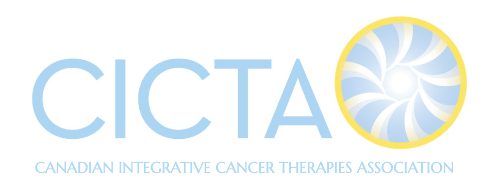Jack He, MD, MSc, RAc
Canadian Integrative Cancer Therapies Association
Cancer cachexia is a manifestation that results in malnutrition in patients and causes poor quality of life and affect chances of survival due to loss of weight, muscle atrophy, fatigue, weakness, and significant loss of appetite. Some factors that result in malnutrition in cancer patients include decreased food intake, anticancer treatment side effects, and inefficient metabolic processes.
Clinical studies over the past two decades made major advances toward methods and technique of delivering nutrition to patients in diet regimes that can facilitate the rehabilitation process, such as oral dietary therapy, enteral feeding, and parenteral nutrition. Various studies have focused on a method of parenteral nutrition called Total Parenteral Nutrition (TPN) and its usage as adjuvant therapy for anticancer treatment. The evaluation of each method will be discussed in this article.
The three factors that determine the prevalence of cancer cachexia are tumor type and stage, involved organs and the type of anticancer treatment, in addition to complications with conditions of diabetes and various intestinal diseases. In a multicenter cooperative study, it was found that patients with gastrointestinal cancer suffer the most weight loss at the highest frequency of prevalence (>80%). In addition, it was found that over 40% of patients who receive anticancer treatment were malnourished. A study in 1932 reported that malnutrition was the leading cause of death in a group of 400 patients. More recent clinical studies have shown that patients who received anticancer therapy and suffered weight loss tend to have less survival rate than patients who does not suffer weight loss. Moreover, malnutrition leads to greater mortality risk for patients undergoing major surgery.
Cancer cachexia could be caused either by reduced food intake and poor absorption, and/or inefficient metabolism due to metabolic problems. Reduced food intake and poor absorption can happen either by direct effects on the gastrointestinal tract, such as tumor causing gastrointestinal obstruction; or by indirect effects on appetite and metabolism, such as affected sense of taste and smell, and centrally controlled sense of satiation. Anticancer therapy that causes cachexia include antitumor therapy, due to surgery performed on gastrointestinal tract that may affect food ingestion. Chemotherapy causes nausea and vomiting. Radiotherapy induces acute and chronic complications regarding ingestion and digestion. Some of the antineoplastic agents also induce severe gastrointestinal symptoms. Metabolic problems due to cancer cause increase in energy usage, glucose intolerance, hyperlipidemia, loss of body nitrogen, loss of muscle mass, and protein flux. These will result in inefficient metabolism in cancer patients and cause inability to adapt to weight loss and abolished energy conservation.
Nutrition therapies targeted toward alleviation of malnutrition are assessed in terms of its role as adjuvant treatment for anticancer therapy and its long-term effect in patients who would not survive without nutrition therapy. The nutrition therapies examined were oral dietary therapy, enteral feeding, and parenteral nutrition.
Oral dietary therapy is the implementation of a designed diet that targets patients who are able to eat but require special diet because of impairments in the gastrointestinal tract and incorporates the usage of various nutritional supplements. The main problem with oral dietary therapy is taste fatigue. And although food intake was improved, no long-term beneficial effect was noted.
Enteral nutrition involves nutrients being straightly delivered to the gastrointestinal tract via endoscopic techniques, bypassing obstruction. It permits slow continuous delivery rate for optimal use of limited absorptive capacity over long period. It provides long-term beneficial effect for patients with severe or pharyngeal obstruction due to cancer of head and the neck. It is mostly likely to benefit patients with weight loss due to head and neck, esophagus, and stomach cancer.
Parenteral nutrition involves nutrients being straightly delivered to the bloodstream. Total parenteral nutrition can improve body weight and fat storage in patients receiving chemotherapy, as well as replenish specific minerals, trace elements and vitamins. But it does not affect nitrogen loss or protein flux. In addition, all patients receiving TPN had body weight gain and limited increase in some nutrition absorption, their survival rate was not increased, neither was there decrease in therapy complications. TPN did prove beneficial to patients receiving bone marrow transplantation, promoting lower malignant relapse and longer survival. In surgical cancer patients, TPN caused higher rate of infectious complications, and no reduction in postoperative morbidity. Thus, it was concluded that perioperative TPN should only be given to severely malnourished patients, because of improved nutrition gain. Long term TPN used by patients at home was found to have not much benefit.
From the studies above it can be concluded that parenteral feeding is massively beneficial only to cured cancer patients (or with cancer in no progressive stage) who has chronic and severe gastrointestinal insufficiency. Total Parenteral is not useful as an adjuvant to chemotherapy. But it does provide benefit to patients with bone marrow transplant who suffer prolonged gastrointestinal toxicity. It may also benefit preoperatively for malnutrition patients undergoing major surgery. More studies need to be completed on the role of enteral feeding as an adjuvant to anticancer treatment.

